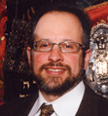 View current news articles, commentary, videos and more that have an impact on Jewish culture, politics and religion at Rabbi Silverman's Sites to See
View current news articles, commentary, videos and more that have an impact on Jewish culture, politics and religion at Rabbi Silverman's Sites to See
Reflections on the beginning of Exodus and the UN Resolution 2334: Saving the world while saving one’s own
We will explore the world of push-and-pull in Moses’ inner psyche and in so doing, maybe see a reflection of ourselves.
Moses bursts onto the scene an internationalist, working on behalf of those who are oppressed. Brought up as an Egyptian royal, Moses looks upon slavery in the abstract and sees an oppressed people, but it takes a while before he actually internalizes that those who are abused are his own people and is bothered enough to spring into action. It says in Vayigdal Moshe, “…and Moses matured and then went out unto HIS people and saw their suffering.” The Midrash tells us that Moses sees an Egyptian raid a man’s home at night and takes the man and his wife out into the dark. The Egyptian approaches the wife, who cannot see in the dark, pretending to be her husband. Thereafter, with the Egyptian knowing that the man is onto him, this taskmaster torments the slave daily. Moses “looked here and there…he saw the man’s debasement in his own home and he saw his debasement during the day in the field, and he struck out at the Egyptian and in the process killed him…” But Moses still, at this point, has issues with being a savior only of his own people.
A bounty is put on Moses’ head and he flees to Midian. Seeing that working to help your own is dangerous and yet not able to refrain from helping others, he immediately goes to work aiding the daughters of Jethro, who are attempting to draw water for the flock they are tending, but are being tormented by local bullies. Moses defends them and draws their water. Jethro, thinking Moses an Egyptian, rewards Moses by giving him Tzippora to wed, and Moses fathers two children and stays in Midian as a shepherd. Moses is contented for forty years, fully one third of his life, ignoring his own people’s suffering while helping a different people and helpless animals. It only when happening upon God in the form of a strangely and perennially burning bush, that he is reminded of the oppression of the Hebrews in Egypt. We know of such people that will move mountains to help the oppressed of the world and poor animals suffering, but when it comes to their own people’s plight, they poo-poo it. And aren’t some of these people us? Moses, even after a forty-year hiatus, still drags his feet to the point where God almost kills him on the way back to Egypt!
Moses seems to need to go through that journey of re-sensitizing himself to his brothers’ suffering–vayetze el Echav vayaar sivlotam–to really see the suffering of his brothers, his sisters, and his own family in the main. Much like Abraham before him, he flirts with universalism and worries a lot about people suffering like those in Midian and in Sodom and Gemorrah. Abraham, in his day, overlooked the violence and the people’s incitement–the fact that they were almost all wicked– and struggled to have God save them too. That is a fine and deeply needed sensibility, to an extent. But in Abraham’s case, his focus became so much the inclusion of the wicked that he lost sight of the advocacy of his own. He seemed mute when God told him “Hey Abe, take Ishmael and his mother into the desert with a canteen of water…” He seemed frozen when God demanded, “Nu, slaughter your own son Isaac…” In other words, he loses his bearing and his right to self- preservation. So too, Moses at this point pawns off the job of rescuing those pesky “Israelites,” saying, “God, please I am slow of speech…” Send someone else, please–let me off the hook.
And of course we know this tension. It is difficult not to agree with those who claim we should care about the rights and suffering of so many groups. We should advocate equally for the oppressed groups of minorities and Muslims, of queer people and of illegals. We should be color blind and indiscriminate in embracing the liberation movements of all peoples. Consistency must be the order of the day. Like Moses and Abraham, the needs of those of Sodom and Gemorah and the needs of the Midianites and the needs of all oppressed should occupy our time equally.
But of course, in the long run, choices of time, energy and of priority are upon us, just as they are for Moses and Abraham. What do you or I say when Black Lives Matter asks that there be colorblind law enforcement and minority hiring and a review of legal practices? Oh, and by the way, Israel is a racist and genocidal state systematically oppressing the Palestinian masses! What do you or I say when Palestinians point to this or that search for terror cells or road blocks by the Israeli military in the wake of terrorist incursions or car “drive overs” and say, “See Israel is an apartheid Nazi police state?” What do you or I say when people point to settlers in Judea and Samaria and say, “See, the Israelis are illegally settling Palestinian Territory (when this territory was referred to on most all maps before 1948 as Judaea and Samaria, the ancient homeland of the Israelites of the north.)” And what do you or I say when the world points to the Western Wall Plaza and claims that at the Wall, Jews are occupying Palestine and that the Kotel is really Palestinian, and that Israel is erasing the “religious legacy” of Islam on the Temple Mount, which is, after all, the legitimate site of the Haram Al Sharif? How do we feel when the whole world points to Israel at the UN Paris conference and claims that Israel is on the way to becoming an illegal occupier of the real indigenous inhabitants? In other words, the Jews of Israel are a “Johnny come lately” thief of another peoples’ land?
The tension, of course, is great because we Jews know from history what oppression is. We know what Nazism, Fascism and genocide are. We have seen it up close and personal. And it devastates us to visit it again, even if it’s used completely fallaciously. Our enemies smear us with these false charges because they know how we are affected. They know the universalistic tendency in our DNA, going back to Abraham and to Moses! They know, in other words, how much we so want compromise, so want peace, so want to make nice, and so want to help the oppressed. That is our nature. Wayaar besivlotam–we see and empathize with suffering of others and cannot abide it.
Here is what I say when I waver. The world looks at us Jews and expects us to care about the oppressed, and yet they have a hard time understanding how Israel can occupy a population for fifty years. They are tired of Israel’s circumspection and tired of Israel’s’ foot dragging and worrying about their own border security. And there are even some in the Jewish community that look at it this way. But “oilem is Goilim”– the world is ignorant. Here is what they don’t know or don’t want to know. They don’t know that like most Jews, you and I stem from grandparents and great grandparents that lived in a world without a Jewish state. And the world doesn’t know that our grandparents left towns in the Ukraine (I knew my grandparents but they didn’t speak of their struggles with me because I was too young and they spoke better in Yiddish than English) because of pogroms by hateful and anti-Semitic Ukrainians Cossacks and Poles. Those that didn’t leave–their cousins, aunts, great uncles, second cousins and elders were made to dig their own graves and were shot in the head by Nazis taking target practice. In towns like Bilce and Kremenitz and Kovel and Ludmir and Dzienk near Kiev, 2.8 million Jews lost their lives by bullet before the first gas chamber and extermination camp was built. The Nazis simply went from town to town, and the next day the Ukrainians were auctioning off their furniture and their clothing. And what the world doesn’t know or doesn’t choose to know is that Israeli Jews know this reality, and they know a Sephardic reality of dispossession and murder when Israel was becoming a state. The world doesn’t know that 800,000 Mediterranean, North African, Syrian and Iraqi Jews, who lived in Arab lands 1000 years before the emergence of Islam, were made homeless. All this because there was no State for the Jewish People where their agenda was the agenda. And the world chooses to forget that Israel tried territorial compromise and the Palestinians rejected it–not once, not twice, not thrice, but four times, in ‘37 in ‘48 in 2000 and in 2008–because the Palestinians still have not given up on the idea that they will have a majority both in Israel and Palestine. And they don’t know that unilateral withdrawal didn’t work for the State of Israel when it left Gaza in 2005 and said, “Here, it’s yours. Be a peaceful neighbor,” and instead, the Palestinians build tunnels underground and rocket launchers above ground and continually attacked the southern border of Israel.
All these things the world forgets, and yet, some of us channel our inner Moshe and our inner Abraham impulse to try to save the whole world simultaneously. Therefore, we must concentrate on saving our own, first and foremost, or there will be no Jewish State or Jewish people to try to help the rest of the world. Like John Kerry and President Obama, I also want a two state solution. I think too, that perhaps it is time to limit settlement expansion, but only in exchange for Palestinian concessions like accepting the existence of the Jewish state and a definitive crackdown on preachers and textbooks that incite and spread bald anti-Semitism. Palestinian statehood cannot come about willy-nilly by sprinkling pixie dust in Paris. May the words “the Jews have a right to their own sovereignty in the State of Israel” be heard one day from the mouths of our Palestinian adversary. When this happens, two peoples can and will live side by side, and I have no doubt that the State of Israel will be the first in line to help guarantee the success of a State of Palestine, and to that, let us say, Amen.
